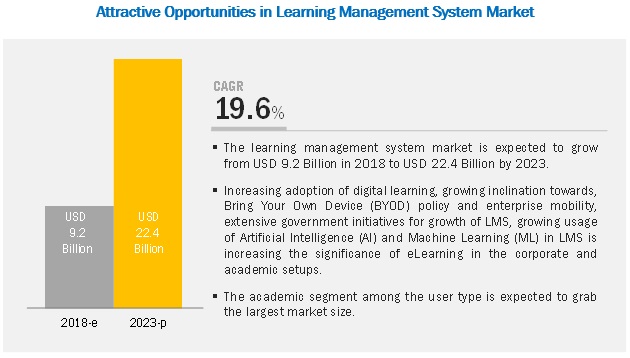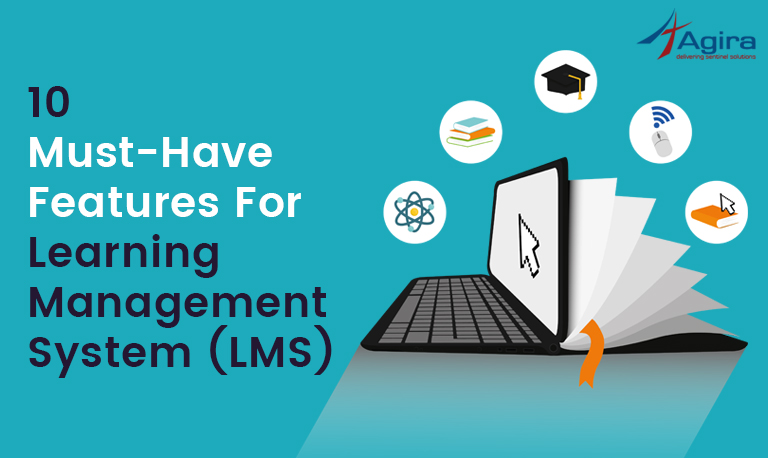Table of Contents
Is an LMS worth your investment? Can it really help you achieve your training objectives? Here is everything you should know before you invest in a new LMS.
If you are new to the concept of Learning Management or already implemented an LMS solution in your organization. This article is for anyone who is interested in an LMS. We are going to take a look into the list of LMS use cases and the benefits an LMS can offer to your organization. It might be quite overwhelming to find a huge number of LMS available today.
If you are planning an LMS, finding the right one can be difficult and tricky especially when your working with a limited budget. The evaluation has to be critical to draw better opportunities. This is where these LMS use cases come in handy. Preparation in advance can help you drive the growth factors or even go beyond.
What is an LMS? Why do you need it?
Learning Management System, LMS is a fully equipped software with high responsive features that enable to deliver automated online training. It is an evolution of learning in the digital era. The increasing adoption of digital learning, growing usage of Machine Learning and Artificial learning in LMS have made itself a significant part of e-Learning and Training developments.
Numerous educational institutions, large multinational enterprises (including small and medium), organizations, NGO’s, Governments are using LMS for more effective learning and training development.
An LMS is available at various deployment options such as self-hosted, Desktop application, mobile application, and Cloud-based application. According to An LMS market report, the market for LMS is expected to raise up to $22.4 billion by 2023 Which is 19.6% of the Compound Annual Growth rate(CAGR).

The most common use of LMS software is to deploy and track online training programs. The primary roles and functionalities of a Learning Management System varies depending on the organization’s objectives and desired outcomes on training strategies.
How does an LMS work? The e-learning content is uploaded to the system which is made accessible for remote learners. It also acts as a repository, where you store and track information. An LMS organizes the courses, which includes creation, changing, updates, formulate assignments and even grade students.
LMS eliminates common problems faced by business in regard to e-learning and training such as slow time-to-market, outdated technologies, and traveling expenses.
Also Read: 7 Technology Trends That Will Uplift Learning Management System
How Learning Management System Benefits your Enterprise?
Here are the emphasized benefits of adopting an LMS for any organization.
- Enhanced customer Service
- Real-time audit reporting
- Allows to keep current updates and policies
- Centralized data storage (Learning materials)
- Allows organizations to provide real-world training
- Highly customizable for maximum results
- Track employee/Student progress and skill development
- Reduce training costs
- Virtual learning environment
- Schedule and Notify to keep your employee learning and compliance up to date
- Boost employee performance
Top 10 LMS Use Cases
1. Academic Learning
LMS solution is widely adopted in the world of Academics. Schools, colleges and universities have implemented LMS that blends with the learning strategies combined with real-time learning technologies. Students are given access to educational resources followed by self-study guides in virtual environments. An LMS also enables online learners to easily access the information they need to expand thier skills and knowledge regardless of place and time. It has also been bridging the gaps in live classrooms.
2. Continuing Education
Be it a college, workshops or trade school. A learning Management system can provide continuing education to the online learners where they can study with any kind of device. The LMS solution also offers the ability to track individual performance, send notifications and create personalized study guides (paths). It offers an effective e-Learning experience to the students in the different parts of the globe. An LMS can boost signups by providing immediate access to online training resources. It also pinpoints the areas of improvement in your overall sales functions.
3. Extended Enterprise
Extended Enterprise LMS enables customers, vendors, and even sales teams to watch demo videos for various products before purchasing a particular product. This creates a good brand image and builds awareness about the product.
4. Customer Training
An LMS platform is designed for customer training similar to the extended enterprise system. An LMS helps the customers gain complete knowledge about the product. The online training also offers ongoing support for the customer, which likely increases loyalty and relationship between the business and its customers.
5. Channel Training
An LMS enables you to provide training for external sales channels such as partners, retailers, supporters or anyone who represent your brand. It allows you to provide knowledge about the product through online training resources for product/service awareness among the sales team about the product features, benefits, and company policies. Thereby, the information is passed to the customers who make the buying decision which will certainly increase your business profit.
6. Compliance Training
Employees must stay updated on their company’s latest protocols which ensures safety. The online training focuses on the rules, policies, and regulations of the company. An LMS can help you deploy compliance online training course for the employees worldwide, it enables you to keep accurate records of your audit.
7. Franchise Training
An LMS specially designed for Franchise or dealers. It enables you to deploy the product knowledge and company policy courses. This is to ensure that brand image awareness and they have all the resources they required about the products or services. This LMS solution enables you to deploy training courses and certification programs.
8. Employee Training
Another area where LMS is most commonly used is for employee training and career development. All kinds of organizations from big to small can have custom made LMS solutions for online training for their remote employees. This leads to better performance, good retention, and increased employee satisfaction.
Related: 10 Must-Have Features For An LMS
9. Training Companies
Some companies opt for outsourcing to provide training. The third-party companies take care of everything in regard to training programs and initiatives. These companies need a reliable LMS that can handle and automate training simultaneously. The LMS platform allows them to assign authorized user groups to keep the information well protected from the trespassers.
10. Public Sector Training
Numerous government organizations and public-funded institutions use LMS for training the external staff members. The contractors use online training software to fulfill thier duties to help them understand the laws and regulations. It is also used to train in-house government employees as it reduces costs and time.
LMS For Online Training – A Case Study
 Not long ago, we built a highly responsive video-based LMS for Online Communication Training. It became one of the successful projects in our LMS development journey. By analyzing our client’s requirements, pain points, and business objectives were our first big step.
Not long ago, we built a highly responsive video-based LMS for Online Communication Training. It became one of the successful projects in our LMS development journey. By analyzing our client’s requirements, pain points, and business objectives were our first big step.
After the product launch, our Learning Management System achieved a 74% growth in sales by providing full customer satisfaction for the users. Some of the major features of the LMS -Decker Digital includes,
- High Video Resolution
- Voice and Pitch analysis
- Browser Compatibility
- Interactive Grids and Notes
- Fast Content delivery
- Flexible hosting
Want to read the full case study? Click here
Thinking about LMS?
Digital technologies have changed the ways education is delivered. We know it is a big decision! An LMS today must not only support e-learning and training but should also align with the organization’s objectives and provide measurable ROI.
We can ensure that investing in an LMS will reflect in increased revenue growth and customer base. With better training and high-quality educational content can lead to higher customer satisfaction and loyalty. It boosts both workforce and salesforce productivity which adds more value to your enterprise desired outcomes.
Need something more on LMS development? Subscribe to the weekly newsletter and get your essentials on LMS technology!
Identifying the pain points of learning and training development around your organization can help you find the right LMS suitable for your business.
Finding it difficult to make a move on LMS? Talk to our experts, we are ready to provide you the perfect solution you need. Our LMS solution will nourish your revenue generation as well as your Training/ e-learning experience. Take your first step towards an LMS development that empowers your goals and offers you maximum benefits!








